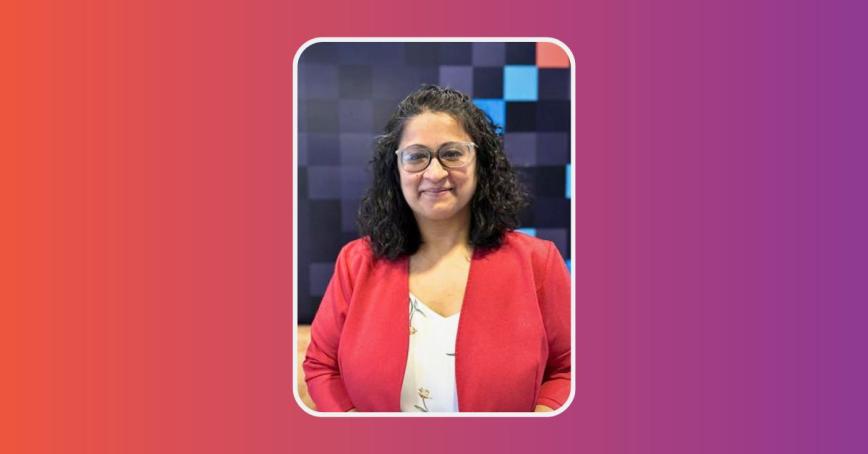Conflict Zones to Classrooms: master's student pairs career and theory
Topics
Featured
Share online

Learn more about the Master of Arts in Human Security and Peacebuilding.
Hasnat Ahsan Johnson’s journey into the Master of Arts in Human Security and Peacebuilding at Royal Roads University was a decision rooted in both practicality and passion. She was searching for a way to combine her professional experience with applied theory.
Johnson is a deputy director (peace and conflict policy unit) for Global Affairs Canada. Her work has taken her to some of the world’s most volatile regions—Gaza, Ukraine, South Sudan, Haiti— seeing the complexities of conflict up close. The opportunity to connect those experiences to academic frameworks learned in her studies helps enhance her impact on the global stage.
“I often represent Canada in many multilateral forums and negotiate with other allies and countries," says Johnson. “It's helpful for me to be able to connect my experience with theory when I'm working with allies. Having that common [applied theory] language is really helpful.”
So how does Johnson balance a busy career that often involves a lot of travel with taking a master’s degree? With a hybrid model that offers a blend of online learning and in-person residencies. This approach provides the flexibility to continue working while studying but also makes space for something more profound: human connection.
“It’s not all online. There’s that human-to-human connection in the residencies which makes a lot of difference,” Johnson says. “I’ve connected with folks that I typically wouldn’t have in my professional life. It’s great because we're connecting international and local experience. Many of my classmates are focused on human security and peacebuilding at a local or regional level. It has been wonderful to connect that with my international framing to see situations from different perspectives, and we reflect that in our analysis and assignments.”
But it doesn’t stop at learning theory and submitting coursework, the true power of the program is about using theory in real-world settings.
“There’s a direct link between this program and my work,” Johnson says. “I’ve been able to take academic analysis and turn it into recommendations for the Government of Canada. It’s a lovely symbiotic relationship.”
Johnson will further explore the interplay between theory and her field experience when she embarks on her thesis. Initially, she didn’t see herself as a thesis-track student, signing up for the course-based master’s instead, but encouragement and mentorship of professors like Rob Hanlon and Kenneth Christie support her decision to switch to the thesis path.
“They helped me assess my interests and showed me how a thesis could connect my field experience with the theory I was learning,” says Johnson, who has begun working on her thesis exploring what the future of women, peace, and security amid shifting geo-political dynamics may be, and proposing meaningful recommendations to implement.
Johnson’s advice to prospective students is clear: if you’re passionate about conflict, human security, or peacebuilding, and want to learn from experienced professors in a flexible, applied setting, this program is for you. “It gives you credibility. It connects theory with practice. And it allows you to keep working while you study.” And she considers the small class sizes and intimate learning environment a bonus too. “I’m not just a face in a classroom of 50 or 100 people. I’m an individual to my professor.”
Looking ahead, Johnson hopes to return to RRU as a guest lecturer.
“I’d love to come back and share some of my knowledge with future students,” she says. “To show them what it looks like when theory and practice come together in the real world. That twin element of theory and practice is so powerful.”
Learn more about the Master of Arts in Human Security and Peacebuilding.